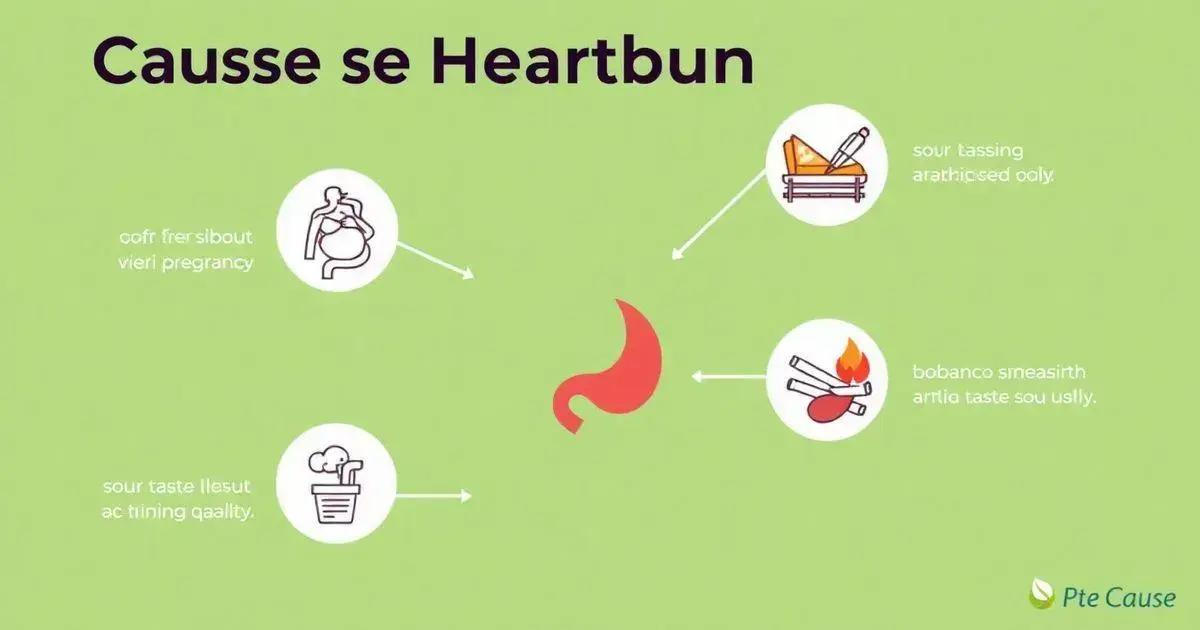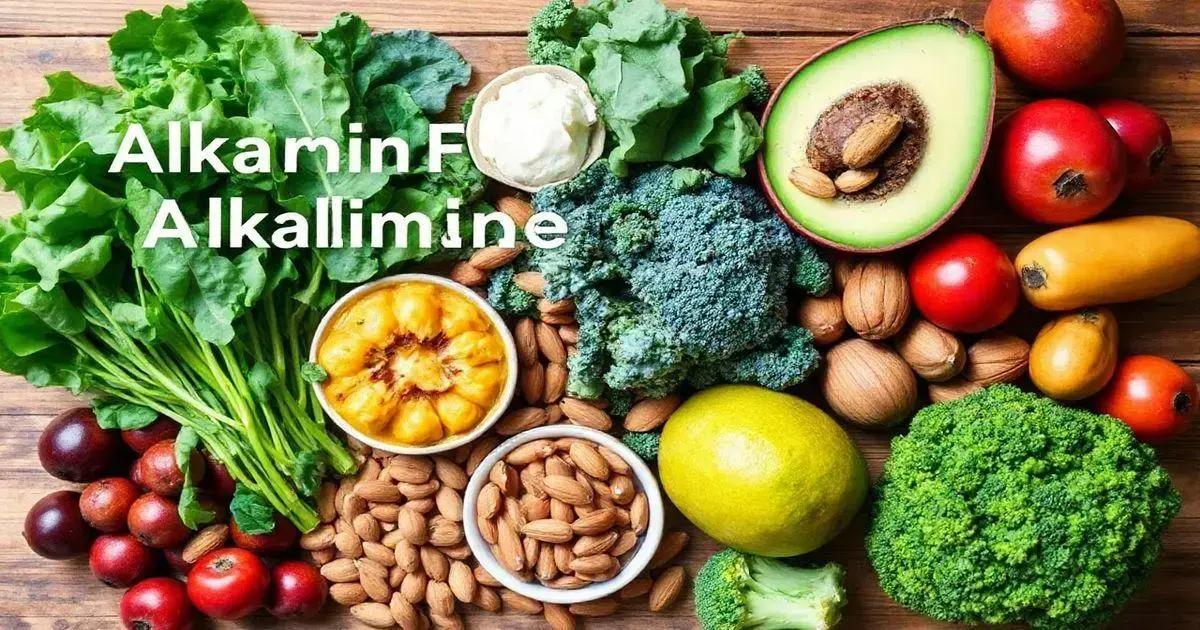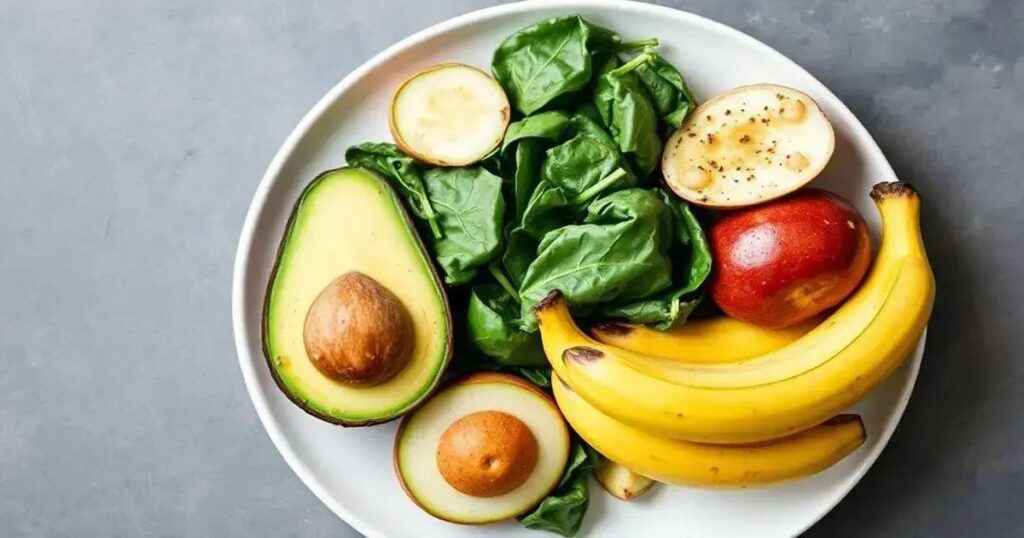Managing frequent heartburn can be effectively achieved by incorporating alkaline foods into your diet. Foods like leafy greens, bananas, and almonds help neutralize stomach acid, improve digestion, and provide long-term health benefits such as increased energy and better weight management.
Heartburn can be a troublesome and uncomfortable condition for many. Fortunately, learning how to manage frequent heartburn with alkaline foods can offer much-needed relief. By incorporating alkaline foods into your diet, you can help neutralize stomach acid and improve overall digestive health. In this article, we will explore the causes of heartburn, discuss the top alkaline foods that can alleviate discomfort, and provide practical tips for integrating these foods into your daily meals.
Understanding Heartburn and Its Causes

Heartburn is a common issue affecting many individuals and can be quite uncomfortable. It occurs when stomach acid moves up into the esophagus, which is the tube connecting your mouth and stomach. This can create a burning sensation in the chest or throat, often referred to as acid reflux.
What Causes Heartburn?
There are several factors that can lead to heartburn. Some of the most common causes include:
- Diet: Certain foods and drinks, such as spicy foods, citrus fruits, tomato-based products, chocolate, and alcohol, can trigger heartburn.
- Overeating: Eating large meals or lying down right after eating can increase the likelihood of acid reflux.
- Obesity: Excess weight can put pressure on the stomach, pushing acid into the esophagus.
- Pregnancy: Hormonal changes and pressure from the growing baby can lead to increased heartburn.
- Tobacco Use: Smoking can weaken the lower esophageal sphincter, making heartburn more likely.
Recognizing Symptoms
Heartburn symptoms can vary from person to person but commonly include:
- A burning sensation in the chest, usually after eating
- Burning in the throat or a sour taste in the mouth
- Difficulty swallowing
- Chronic cough or hoarseness
Understanding these causes and symptoms is essential for managing heartburn effectively. Making dietary changes, like incorporating alkaline foods, is one way to alleviate symptoms and promote better digestive health.
Top Alkaline Foods to Fight Heartburn

Incorporating alkaline foods into your diet can significantly help in managing heartburn. These foods can neutralize stomach acid and provide relief. Here are some top alkaline foods to consider:
- Leafy Greens: Vegetables like spinach, kale, and Swiss chard are great alkaline choices. They are low in calories and full of nutrients.
- Fruits: Many fruits, such as bananas, melons, and apples, can help soothe the stomach. They also have a high water content, aiding in hydration.
- Almonds: These nuts are not only delicious but also alkaline-forming. A handful can be a healthy snack that may help ease heartburn.
- Broccoli: This vegetable is rich in vitamins and minerals and has a high alkaline content. Steamed or raw, it makes a great addition to your meals.
- Herbal Teas: Herbal teas, like chamomile and ginger, can be soothing. They help to calm the stomach and reduce acidity.
Benefits of Alkaline Foods
Including these foods in your diet can help manage heartburn effectively. They not only promote digestive health but also enhance overall well-being. Remember to combine these alkaline foods with a balanced diet for the best results.
Practical Tips for Incorporating Alkaline Foods

Incorporating alkaline foods into your meals can be simple and rewarding. Here are some practical tips to help you add these foods to your diet:
- Start Your Day with Alkaline Foods: Begin your morning with a green smoothie made from spinach or kale, mixed with a banana and almond milk. This is a delicious way to get nutrients right away.
- Snack Smart: Replace unhealthy snacks with alkaline options like almonds, carrots, or cucumber slices. Keep these foods handy for when you feel hungry.
- Salads are Your Friend: Fill your lunch plate with alkaline-rich greens. Mix in colorful vegetables like bell peppers and beets to enhance flavor and nutrition.
- Cook with Herbs: Use herbs like basil, cilantro, and parsley to flavor your dishes. They not only add taste but also boost alkalinity.
- Experiment with Recipes: Try new recipes that feature alkaline foods. For instance, make a quinoa salad with chickpeas, tomatoes, and avocado for a filling meal.
Plan Your Meals:
Planning your meals ahead of time can help ensure you have the right ingredients on hand. This way, you’re less likely to choose unhealthy options.
By following these tips, you can easily incorporate alkaline foods into your daily routine and help manage heartburn effectively.
Long-Term Benefits of an Alkaline Diet

An alkaline diet offers many long-term benefits that can improve your overall health and well-being. Here are some key advantages:
- Improved Digestion: An alkaline diet can enhance the digestive process, reducing symptoms like bloating and gas. Foods rich in fiber, such as fruits and vegetables, help maintain a healthy gut.
- Balanced pH Levels: Consuming more alkaline foods can help balance your body’s pH levels. A balanced pH is crucial for optimal bodily functions and may prevent chronic diseases.
- Increased Energy Levels: By focusing on nutrient-dense alkaline foods, you can experience more stable energy throughout the day. This is because these foods are healthier and less likely to cause sugar crashes.
- Better Weight Management: Alkaline foods tend to be lower in calories and high in nutrients. This means you can eat more and feel satisfied while managing your weight effectively.
- Enhanced Immune Function: A diet rich in alkaline foods can boost your immune system. Foods high in vitamins and minerals help keep your body resilient against illnesses.
Including alkaline foods in your diet can lead to lasting health improvements. By focusing on these benefits, you can make better choices that support your overall wellness.
How Alkaline Foods Can Transform Your Digestive Health
Incorporating alkaline foods into your diet is a powerful strategy for managing frequent heartburn and improving overall digestive health. By understanding the causes of heartburn and recognizing the top alkaline foods, you can effectively alleviate discomfort and enhance your well-being.
Practical tips for incorporating these foods into your daily routine make it easier to adopt healthier eating habits. Moreover, the long-term benefits of an alkaline diet—such as improved digestion, balanced pH levels, and increased energy—highlight the positive impact these choices can have on your life.
By making informed dietary choices and prioritizing alkaline foods, you can take important steps toward a healthier, more comfortable lifestyle.
FAQ – Frequently Asked Questions About Managing Heartburn with Alkaline Foods
What are alkaline foods?
Alkaline foods are those that can help neutralize stomach acid, promoting a balanced pH in the body. Examples include leafy greens, bananas, and almonds.
How can alkaline foods help with heartburn?
Alkaline foods may alleviate heartburn symptoms by neutralizing stomach acid, reducing discomfort, and promoting better digestive health.
What are some practical tips for incorporating alkaline foods into my diet?
Start your day with a green smoothie, snack on almonds or veggies, include salads at lunch, and experiment with recipes using alkaline ingredients.
What are the long-term benefits of an alkaline diet?
An alkaline diet can lead to improved digestion, balanced pH levels, increased energy, better weight management, and enhanced immune function.
Are there any foods I should avoid to manage heartburn?
Yes, it’s best to avoid spicy foods, citrus fruits, chocolate, caffeine, and high-fat foods, as they can trigger heartburn symptoms.
Can an alkaline diet help prevent heartburn?
While it may not completely prevent heartburn, an alkaline diet can significantly reduce the frequency and severity of symptoms for many individuals.













